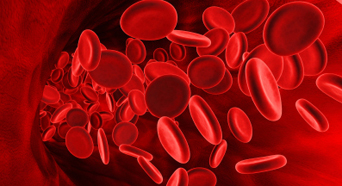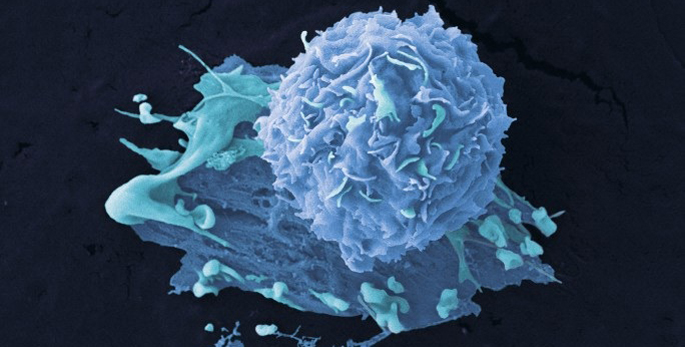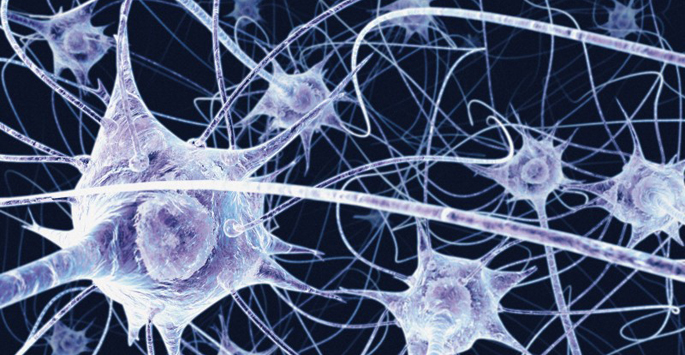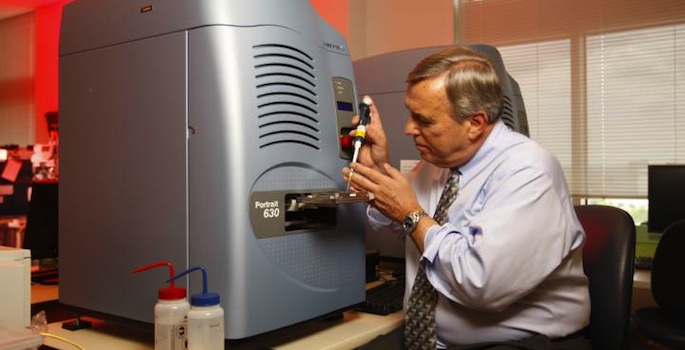NIH
-

Motoring to the tips of the brush border
New findings implicate a motor protein in the assembly of the brush border in the intestines and kidneys – a specialized surface that is critical for healthy organ function. Read MoreOct 6, 2016
-

Childhood health influences focus of new NIH initiative
The National Institutes of Health (NIH) recently announced it will provide $157 million in awards to launch a multi-center, seven-year initiative that will investigate how exposure to environmental factors in early development — from conception through early childhood — influences the health of children and adolescents. Read MoreSep 29, 2016
-

BMI genotype and breast cancer risk
For breast cancer prevention, a new study provides evidence for lifestyle modification to reduce weight gain in adults. Read MoreSep 29, 2016
-

Targeting norovirus “noxiousness”
New discoveries will guide efforts to develop vaccines or antiviral agents for norovirus, the most common cause of infectious diarrhea. Read MoreSep 28, 2016
-

Study shows excess dietary zinc worsens C. diff infection
Too much dietary zinc increases susceptibility to infection by Clostridium difficile — “C. diff” — the most common cause of hospital-acquired infections. Read MoreSep 26, 2016
-

Blood exposures for traditional healers
Traditional healers in sub-Saharan have a high rate of exposure to blood, putting them at risk for HIV and hepatitis C. Read MoreSep 23, 2016
-

‘Shed-Meds’ to explore helping elderly reduce number of medications
Vanderbilt University Medical (VUMC) researchers have received a $2.9 million federal grant to test the effectiveness of a new intervention that aims to help older patients reduce the number of medications they may be taking on a regular basis. Read MoreSep 22, 2016
-

Restore T cells to fight leukemia
Modulation of T cell metabolism thus may represent a new therapeutic avenue for leukemia patients. Read MoreSep 14, 2016
-

Risk factors for delirium
High levels of blood markers for vascular endothelial dysfunction were associated with longer periods of confusion in ICU patients, Vanderbilt researchers have discovered. Read MoreSep 13, 2016
-

In search of new cancer targets
Vanderbilt researchers developed a new algorithm to find clinically targetable gene rearrangements in cancers. Read MoreSep 9, 2016
-

Going after the ‘heart attack gremlin’
A protein called Gremlin 2 controls the extent of inflammation after heart attack and may be a good therapeutic target. Read MoreSep 8, 2016
-

‘Audacious’ grant spurs research on retina regeneration
Researchers at Vanderbilt University Medical Center and Vanderbilt University have received a $1.9 million grant from the National Institutes of Health (NIH) to support research to restore vision through regeneration of the retina. Read MoreSep 1, 2016
-

Proliferative capacity of neuroblastoma
The sphere-forming frequency of neuroblastoma cells is a measure of their proliferative capacity and could help guide treatment strategies for neuroblastoma. Read MoreAug 31, 2016
-

Nervous system’s role in hypertension
Increased activity of the “fight or flight” nervous system contributes to obesity-associated hypertension and may be a good therapeutic target for the disease. Read MoreAug 29, 2016
-

New breast cancer driver
Vanderbilt investigators have demonstrated that a certain protein complex drives tumor progression in aggressive breast cancers. Read MoreAug 26, 2016
-

VUMC lands NIH training grant in emergency care
Vanderbilt University Medical Center (VUMC) has received a five-year, $2 million award from the National Institutes of Health (NIH) to establish the Vanderbilt Emergency Care Research Training Program. Read MoreAug 25, 2016
-

Growth hormone for Prader-Willi
Children with Prader-Willi Syndrome who received growth hormone treatment had cognitive advantages compared to untreated patients. Read MoreAug 25, 2016
-

In search of new asthma therapies
A peptide molecule relaxes airway smooth muscle and may be a potential therapeutic for asthma that has become resistant to standard therapies. Read MoreAug 15, 2016
-

New culprit in nerve degeneration
Vanderbilt researchers have discovered that regulation of cell volume plays a role in nerve degeneration and peripheral neuropathies. Read MoreAug 12, 2016
-

NIH grant bolsters mass spectrometry research initiatives
The National Institutes of Health (NIH) has awarded a major renewal grant to continue the National Research Resource for Imaging Mass Spectrometry at Vanderbilt University School of Medicine. Read MoreAug 11, 2016